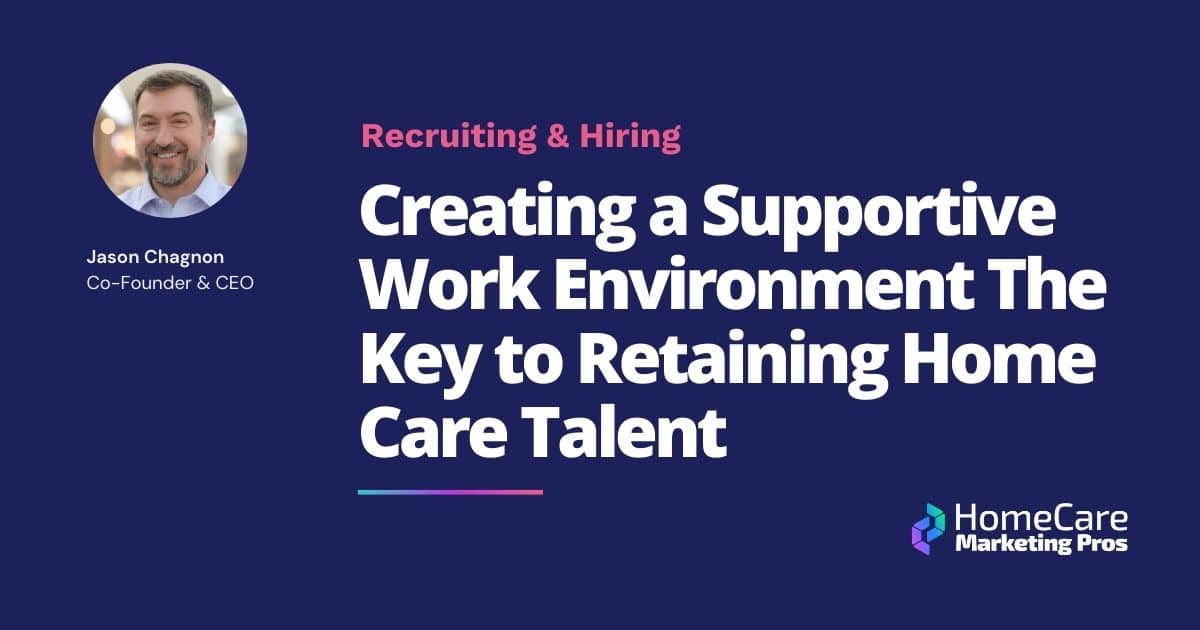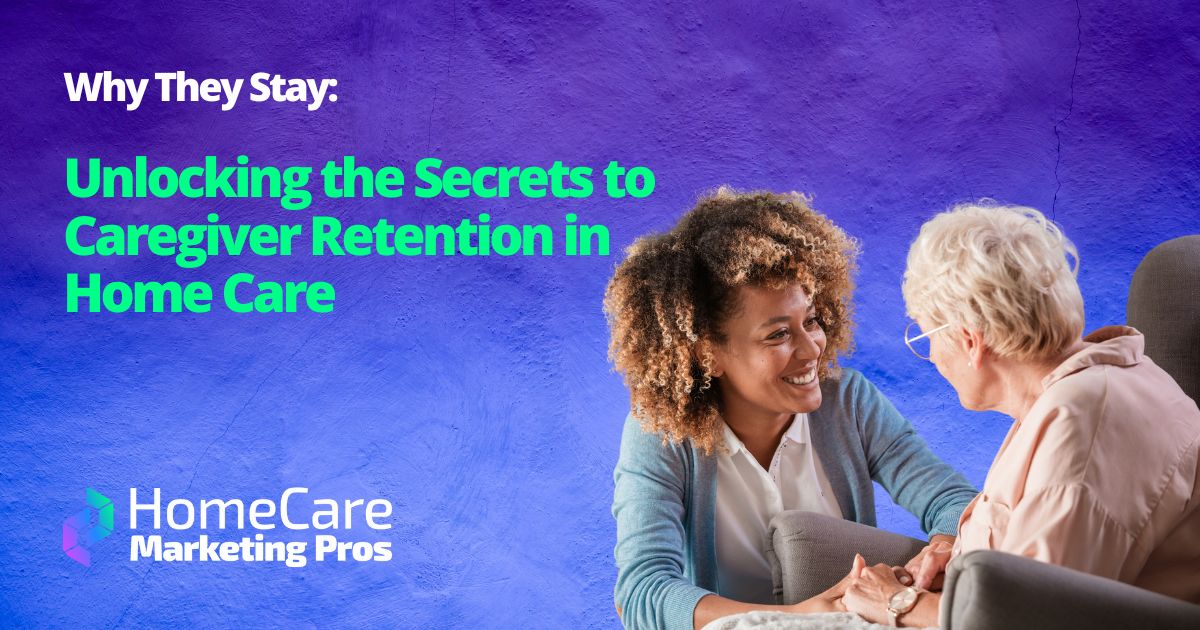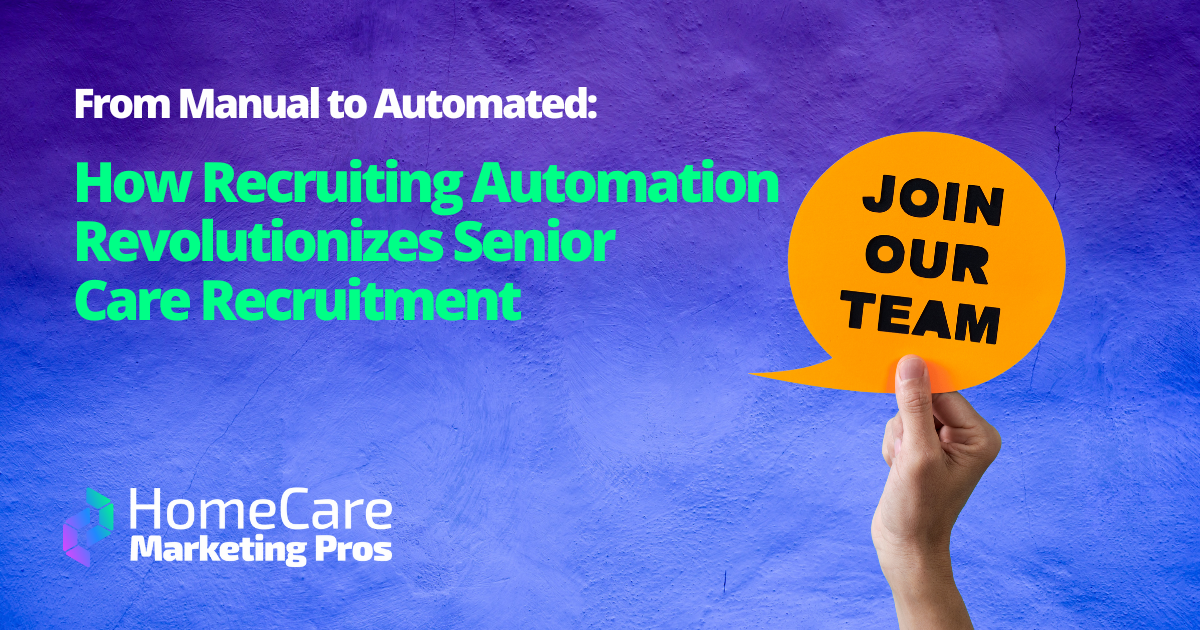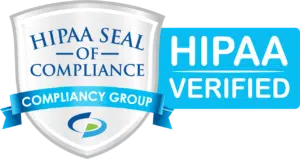5 Ways You Might Be Messing Up Your Caregiver Recruitment Without Realizing It
Trying to improve your caregiver recruiting efforts? Connor Kunz of Careswitch shares 5 mistakes to avoid making with your caregiver recruitment strategy!

Everybody’s struggling with recruitment right now and probably have been for a while. If you’re reading this, you probably are too.
Recruiting quality caregivers is both an art and a science; there are best practices like using the right channels and paying the right amount, but there are plenty of easy ways to unknowingly undermine your own efforts.
This sounds rough, but it’s good news; it means that with small tweaks, you might be able to drastically improve the performance of your recruitment efforts.
How many of these mistakes are you making?
1. Taking too long to get back to applicants.
A while ago I conducted an informal poll in a Facebook group for home care owners, asking how long they’re taking to get back to applicants when they apply for caregiving positions online.
Dozens of agency owners responded; the average time was 2-3 days, with a few coming in at less than that and a number of them coming in at 5-7 days or more.
Research from various sources (including, probably, your own experience) has proven that caregivers tend to choose a particular agency based on it being the first one to get them working.
It’s easier said than done, but if you do what it takes to get your response time down to 24 hours on a weekday or 72 hours on a weekend, you’ll enjoy a massive advantage over other employers competing for the same applicants—particularly if the rest of your hiring process is similarly speedy.
It sounds tough—but think of how many challenges you wouldn’t have to deal with if you were getting more caregiver applicants.
It ain’t easy, but it’s worth it.
2. Relying on only free or only paid ads on job sites.
This tip sounds weird, but there’s a simple reason why it’s important to use both free and paid ads on job sites like Indeed: each of these types of ads has its own advantages and disadvantages.
Paid ads have the advantage of appearing in more searches, often appearing at the top of a list. However, they generally have labels like ‘sponsored,’ and many of us are conditioned to skip past ads and go straight to organic results, which we perceive (often rightly) to be more reliable.
We were trained to do this by Google, but this behavior often leaks to other platforms. (This is particularly true for Gen Z applicants, who trust ads less than anybody.)
So, make sure you’re taking advantage of free listings on any job sites you’re using.
At the same time, paid ads have their place—like I said before, they generally appear in more places on a site and appear higher in search results. Using a mix of ad types will help ensure you’re hitting the right people.
3. Not tweaking your hiring ads to see what works.
Similarly, I’ve noticed an interesting trend as I’ve watched caregiver job ads in my local area and other markets. (I’m a weirdo who keeps an eye on stuff like that.)
Many of these job ads stay up unchanged for months at a time, sometimes with visibly out-of-date information, even while the agencies talk about the challenges they’re having hiring caregivers.
Keeping information current in your job ads is the minimum bar. Generally, you should be revisiting your ads weekly to tweak the headlines/wording and see what improves your clickthrough rate and other stats.
It’s interesting to realize that while recruitment is basically a form of marketing, we often take a less scientific approach to recruitment than we do to marketing. Remember: it’s an art and a science. Don’t neglect the science.
4. Not having a feedback system in place.
At the end of the day, you don’t know what you don’t know.
Something affecting your employee experience bleeds over into your hiring. If you have a supervisor who’s especially tough to work with, for example, word gets out. Caregivers stop referring their friends, and over time negative word of mouth becomes a drag on your recruitment.
The scary thing is that these types of problems are often blind spots unless you have feedback systems set up proactively to catch them.
Having an “open-door policy” where caregivers are invited to come and talk to you about problems at any time is a good start, but it’s not enough.
I recommend having multiple feedback systems in place and making sure every caregiver knows about them. This typically includes publicizing an open-door policy, having someone other than a caregiver’s supervisor occasionally check in just to see how they’re doing, and using a feedback system like Home Care Pulse’s surveys to ensure that caregivers have a way to give feedback anonymously.
5. Having a casually crappy candidate experience.
Let the record show that yes, I just used the word ‘crappy’ in a professional business context.
It’s all too common for owners and staff to be casually inconsiderate of caregivers during the interview process—this might include being late to interviews, being abrupt or short with them during the interviews themselves, or otherwise communicating that they aren’t valued or are valued only as a warm body to go to shifts.
Treat Your Caregivers The Way You Want Them To Treat Your Clients
This is probably a good way to introduce the single most important factor in your caregiver recruitment: the culture you create with your own example.
Culture is to recruitment as product is to marketing. Your behavior models the way your employees act.
Treat your caregivers the way you want them to treat your clients. (This includes applicants.)
Everything else tends to fall into place when you do.
I hope this was helpful. By the way, I work for Careswitch—a new home care software built for small but growing home care agencies. It’s built by a team of crazy talented designers and engineers with initials like MIT, IBM, and PhD on their resumes, and customers are loving the simplicity and ease of use. We even have dedicated engineers who take your feedback and use it to add the features that are most important to you. And did I mention it’s free to use our agency management software? If you want to try it out for free without talking to a salesperson, you can sign up free here.













